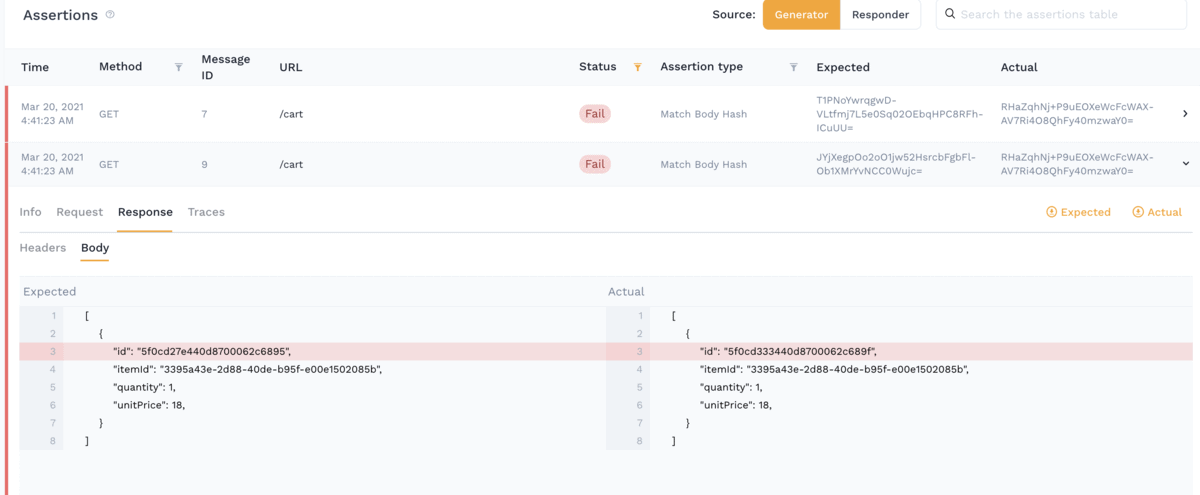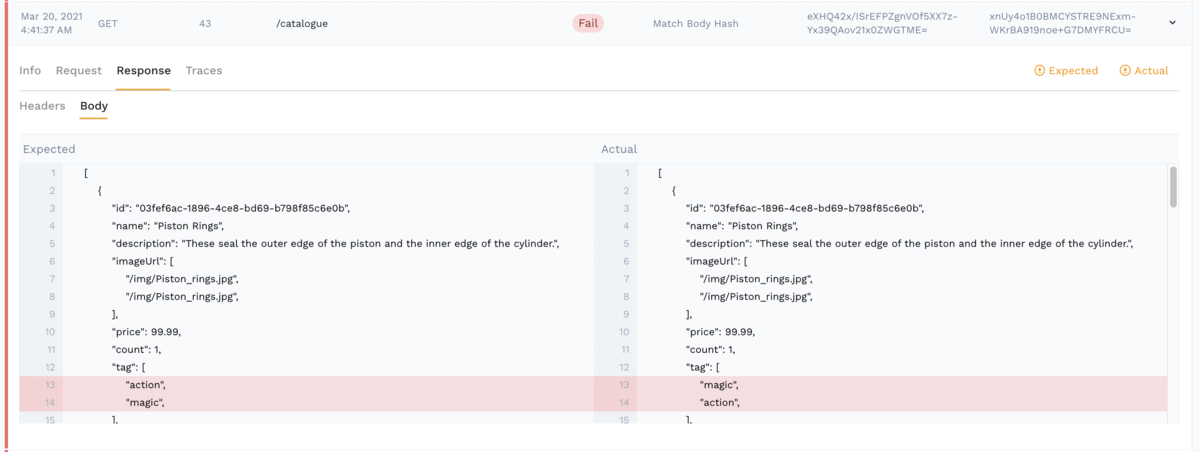When making changes to applications these days, it’s hard to understand and predict the impact of those changes before you deploy. API connections are multiplying, and with new cloud platforms such as containers/serverless, it only add to the complexity. Some people have trouble remembering whether they closed the garage door or turned off the coffee maker. Can you remember all the details of your latest API contract change? Let alone who would be impacted and needed to be notified? Even without changing anything, is there an accurate picture of who interfaces with you and then who you, as a result, interface with downstream?

This is why we built Diff View into our Traffic Replay. Whenever updates are made to your API, you can replay Snapshots of previously observed traffic and compare behavior to your updated API. Upon replay, Speedscale highlights any differences with regard to different values (configurable), missing text, and even ordering of values. When making contract changes, expected differences can be “ignored” for the future (so the replay success totals don’t get skewed), and also re-analyze the results. If differences were unexpected, you may have just caught the next production outage before it occurred.

The Diff View is an automated, fast way to validate you won’t break anything in prod after an update. Manually writing tests to check for all possible problem areas can be a) impossible to adequately build coverage for and b) tedious and time consuming to do. Selecting Snapshots of traffic and replaying them whenever a new build is committed is fast, efficient and automated. Moreover, getting machines to do tasks is far less error prone and removes the guesswork. We had a customer recently who had accidentally wired the default API hostnames to localhost, and Speedscale was able to identify this code would not run properly once it got promoted. These types of errors are far too common.
Speedscale’s Diff View is convenient, but even moreso when you consider it can mock any dependencies needed for traffic replay. Part of the reason why validating code is so difficult is because state of endpoints, databases and traffic is constantly changing. By capturing snapshots in time and mocking the corresponding dependencies which Speedscale auto-discovers and mocks for you, you have a stable, predictable test lab that you can build and run against repeatedly. API Tuning, experimentation and most importantly, quick and easy performance preview is now possible with Speedscale Traffic Replay. You don’t have time to build all this yourself. Let Speedscale capture live traffic from your environment and play against your next build. If you’d like to see traffic replayed against your own new code, schedule a demo with us.
————–
Many businesses struggle to discover problems with their cloud services before they impact customers. For developers, writing tests is manual and time-intensive. Speedscale allows you to stress test your cloud services with real-world scenarios. Get confidence in your releases without testing slowing you down. If you would like more information, schedule a demo today!